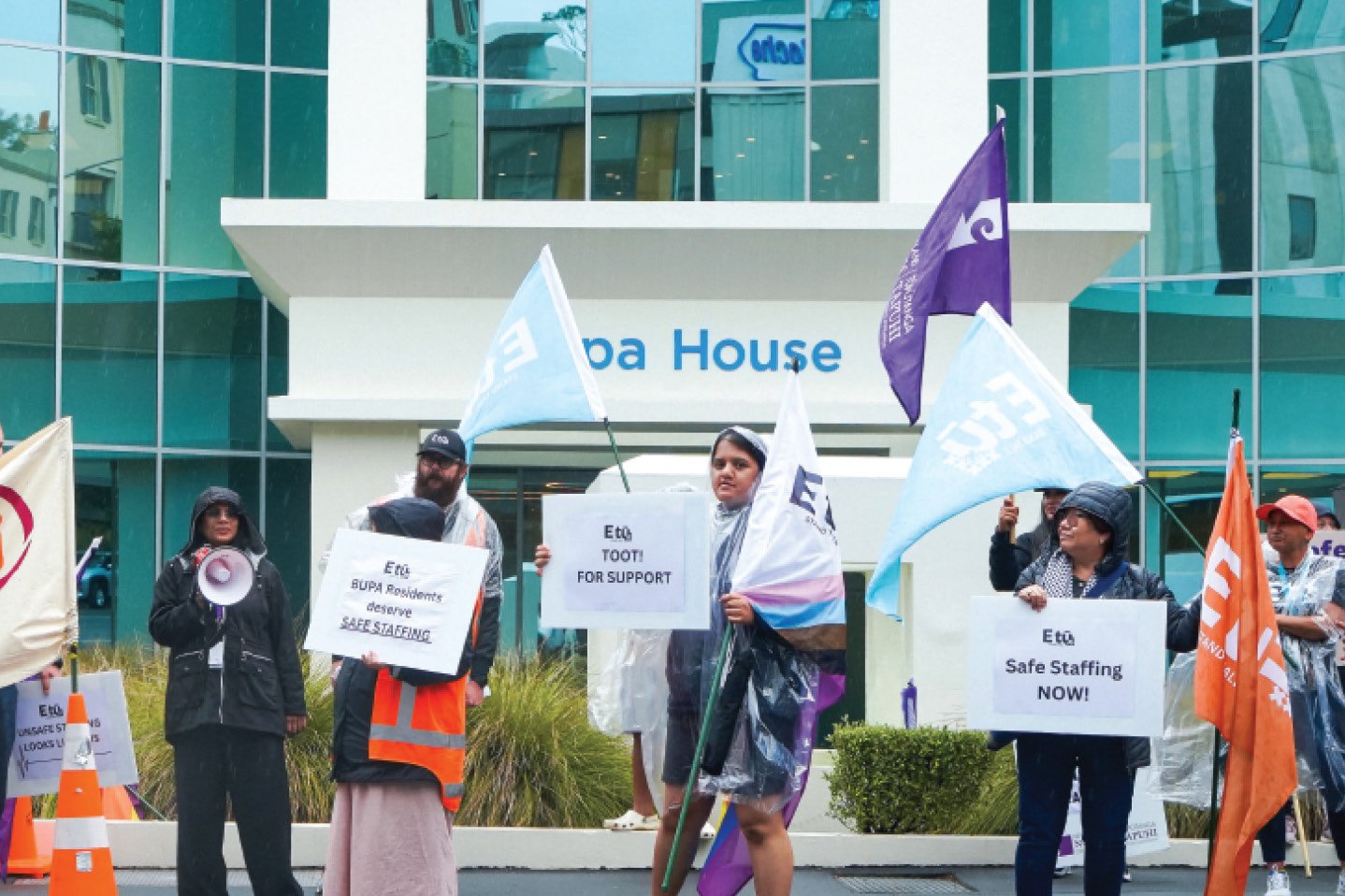Source: Tax Justice Aotearoa
Tax reform advocacy group Tax Justice Aotearoa is calling on the Government and opposition parties to remedy the failures in our taxation system illustrated by a new report from the Centre of International Corporate Tax Accountability and Research, which looks at transparency and corporate tax issues in the heavily public-funded aged care sector.
“Instead of talking about the possibility of reducing our corporate tax rate of 28 per cent, the Government should be finding ways to increase financial transparency, and ensuring that multinational corporates pay their fair share of current corporate tax by reviewing the thin capitalisation rules,” says Glenn Barclay, Chairperson of Tax Justice Aotearoa.
“This is particularly urgent where public funds are paid to multinational corporations delivering services on behalf of the government.”
The report focuses on the transparency of public funding in the aged residential care sector, and shows how our tax system allows multi-national providers to avoid paying the taxes that the public would expect them to pay, demonstrating this through the example of UK-owned BUPA.
BUPA had an average effective corporate tax rate over the past decade of only 4 per cent, much lower than the headline rate of 28 per cent, driven largely by tax-free capital gains.
In addition, the company appears to have used inter-company interest payments on a substantial loan to an Australian-incorporated BUPA company, which may have reduced taxable income by around $151m over the decade, trimming tax revenue by as much as $27 million over that period.
“This ability of multi-nationals to set up loans between subsidiary companies in different countries and then claim tax deductibility on the interest from those loans is a major issue,” says Glenn Barclay.
“While entirely legal, this ‘thin capitalisation’ is an approach that most members of the public would find questionable. It also gives multi-national players an advantage over wholly New Zealand-owned companies in competitive markets.”
“New Zealand does have thin capitalisation rules that are supposed to prevent this kind of activity, but this example shows that they are simply not strong enough,” says Glenn Barclay.
“We note that Australia and the UK have introduced a ‘fixed ratio’ test for interest payments on related party debt which limits allowable interest deductions in any one year to 30 per cent of gross earnings and this is the kind of measure that we should also seriously consider.”
“On a related matter, we note that IRD is looking at relaxing the existing thin capitalisation rules for infrastructure projects as part of its work programme agreement with the Minister of Revenue.
This could well be in the Budget and would be a big step in the wrong direction,” says Glenn Barclay. “We urge the Government not to go down this route, but instead look at tightening this provision across the economy.”
The report questions the tax exemptions in the sector for capital gains arising from revaluations of assets, which is significant given the amount of real estate that companies in the sector own.
“It seems that aged residential care providers are intentionally using the capital gains they make from selling both rights to occupy properties to new residents, and sometimes the properties themselves, as part of their income streams,” says Glenn Barclay.
“If this is true, then the current law, which says that capital gains on sales made intentionally for that purpose are taxable, should be enforced. If, for some reason, it is not enforceable, then the law should be clarified. A comprehensive tax on capital gains would resolve these issues in a much clearer way.”
The report also raises questions about the level of funding for the aged care sector and the extent to which unaccountable multi-national and other private providers should be involved in service delivery.
“The report indirectly supports the need for more funding for aged care generally as the population ages and this is yet another example of a demand for services that only a more progressive tax system that properly taxes wealth can address,” says Glenn Barclay.
